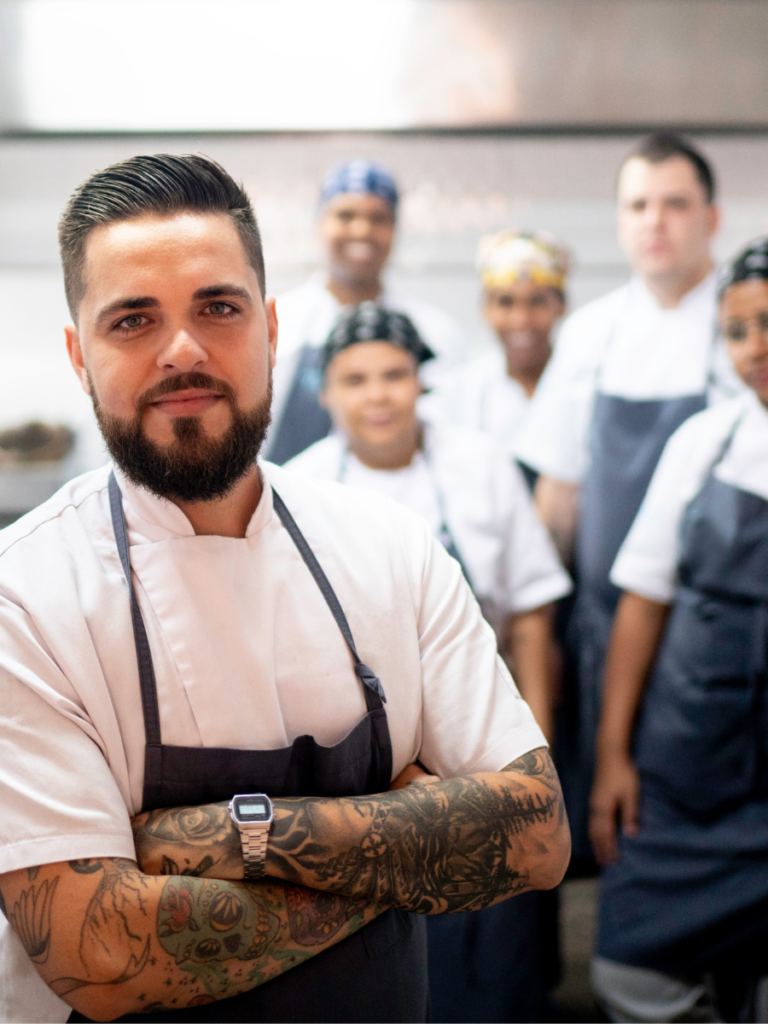Being a chef isn’t easy. The often-underappreciated role requires a high level of intelligence, a creative spark, resilience, an acute attention to detail, passion, and an ability to remain calm under pressure (just to name a few). Many of these skills are a standard requirement, but some chefs are pushing food and dining to greater heights in Australia.
Although times are tough for the foodservice industry, it’s awesome to see chefs putting their hands up to lead us into a new era of food in this country and it is a testament to their unwavering resilience. What they’re doing now will have a huge impact on the future of the foodservice sector. So, it begs the question, what is the new wave of chefs bringing to the table? Here are a few takeaways from what we’ve found:
1) Australian chefs taking their talents to the bush!
Many chefs dream of taking their talents to the vast expanse that is regional Australia. However, dreams are free and doing it is a whole different story.
With the struggles that the major cities have seen recently, people have become more open to packing their things and taking the plunge. In fact, a report from the Australian Bureau of Statistics suggests that Australia’s capital cities lost 11,200 people during the September quarter in 2020, which is the biggest net loss the country has seen this century.
We’re sure that among this group there is an abundance of chefs eager to test their wares and bring new opportunities to regional Australia. It will be fascinating to see how this will shape business models of the future.
2) Looking local for menu magic
Australia has always benefited from a rich history of migrant families bringing beloved cuisine to the food scene here. A walk through any major town will show the appreciation that Aussies have for international dining experiences.
Now though, Australian chefs are experimenting with native Australian ingredients to unlock a new element to Australian cuisine, and truly put it on the culinary map.
It’s not just the ingredients either. Many local chefs are turning to traditional cooking methods too and using natural elements to elevate their offering. Chef Aaron Turner, who previously owned the double-hatted restaurant Loam, spoke on his new venture and alternative cooking methods with GQ:
“We use the fire as a guide and let the flame and smoke enhance the natural flavours of the produce we are using” he said.
3) Calling all local talent, but migrant workers are key for recovery
In the aftermath of COVID-19’s arrival, many countries (including Australia) restricted their borders. This lead to a huge portion of the migrant workforce to move back to their countries of origin to best prepare for the relative unknown.
This has led to widespread staff shortages that continue to plague the industry despite border restrictions easing. To combat this there has been a real push for an injection of local talent, with employment programs offering unlikely candidates work within hospo. But it’s still not enough to fill all the vacancies.
It’s still hard to predict how the recent border changes will assist, but you could expect a new mix of personalities in the months to come. And although fresh faces may lack in learned skills, a variety of new perspectives and experiences should be a welcome addition to the ever-evolving industry.
The past 2 years has presented a variety of unique challenges, some too great for a bunch of businesses. But there is hope in the resilience of hospo workers, and the wealth of keen innovators that make up the usually colourful industry.
If you have liked this story and would like to share yours with us, we’d love to hear from you! We’re always eager to promote our customers and share their insight to other foodservice professionals like you. If you would like to get in touch, you can contact us here or simply flick us a message on the Riviana Foodservice page today.

